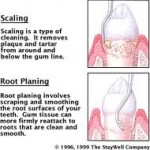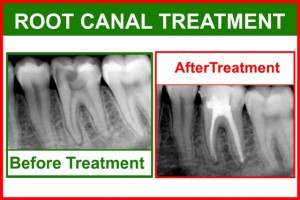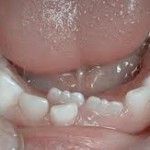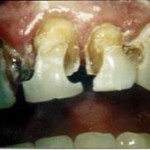Are you refraining yourself from ice cream, cold drinks, cold air in the mornings when you breathe through your mouth causing a jolt to your teeth and forcing you to stay indoors? Even biting on a candy is causingpressure to your tooth? The answer is simple, you are suffering from sensitive teeth. Wondering how did all this happen? It could be due to various reasons from decay to gum disease. Continue reading
Tag Archives: good oral hygiene
Dental care for the elderly
 Gerodontology is a branch of dentistry that deals with the diagnosis, prevention and treatment of oral diseases. There are few problems which may affect the oral health status of the elderly: Continue reading
Gerodontology is a branch of dentistry that deals with the diagnosis, prevention and treatment of oral diseases. There are few problems which may affect the oral health status of the elderly: Continue reading
What is Deep Gum and Root Cleaning?
Deep gum cleaning consists of scaling and root planing. Gum disease (gingivitis) if untreated can progress to more
serious periodontal disease (bacterial/viral proliferation which overwhelms the host immune response) causing destruction of the supporting tissues of the teeth and bone loss which are irreversible in nature. A periodontal pocket forms and harbors bacteria in large amounts. Deep scaling and root planning are the therapeutic procedures performed to heal your gums by removing the disease causing toxins. Scaling is the process of removing dental tartar from the teeth surfaces while root planning involves removing infected tooth structure (dentin and cementum) and smoothing the rough root surfaces of the teeth. The goal of active therapy is to remove as much subgingival debris as possible and disrupt/ the bacterial proliferation. Continue reading
Foods you should avoid eating while wearing braces
Braces are fixed orthodontic appliance which is used to straighten your teeth, providing you a better smile and confidence.While wearing the appliance, you should avoid certain types of  foods which will stick between the wires and make it difficult to keep your mouth clean. These foods can also damage the braces. While wearing the orthodontic appliance, you should constantly clean your teeth and braces using the appropriate brushing method and instruments. Continue reading
How to Prevent and Avoid a Root Canal Treatment
Root canal treatment is a dental procedure commonly used to treat infected or necrotic teeth. It offers an alternative to having the troubled tooth extracted, provided that the root canal system is accessible with reasonable negotiation as close as practicable to the end of the root. The tooth also needs to have an adequate amount of remaining tooth structure and good surrounding bone support.
Why do teeth need root canal treatment?
Teeth requires root canal when the pulp of the tooth has been pathologically involved through decay or periodontal infection such that the pulp is progressively dying or already dead. The pulp in this context refers to the nerve and blood vessel supply of the teeth, which provides sensation and nutrients to the teeth. When bacteria invades the root canal system, it slowly colonize the area to eventually infiltrate the whole canal and causing death of the pulp. Bacteria can still grow on dead pulpal tissue, allowing precipitation of more toxins and causing an infection, which can spread outside to the underlying jawbone and supporting tissues. Despite the nerve being dead, the surrounding tissues still possess neural innervation and this contribute to the pain perception when infection associated with a necrotic nerve is involved. Continue reading
Shark Teeth in Children
Have you ever seen permanent tooth coming in behind baby tooth in children? Is this a normal situation? Many parents become panic when this happens and the child is stressed unnecessarily. We sometimes called this condition as “Shark teethâ€. It is simply when the permanent tooth comes in before the baby (milk) tooth is shed.
What is shark teeth?
It is a common situation during two periods in a child’s development. First, when the child turns 6 years old and the permanent lower incisors erupt behind the baby tooth and then the upper back molars appear when the child is around 11 years old. Some kids develop two rows of teeth or seen in pairs at times. These can appear very unsightly. It earns its name from sharks as they have double row of teeth. Continue reading
How to stop bone loss in teeth naturally
What does it mean by dental bone loss?

Bone loss
For our convenience, the term bone loss is differentiated to two types in our mouth. The loss of bone specifically involving jaw (alveolar) bone area but are not involving teeth is referred as dental bone loss. Meanwhile, teeth bone loss means loss of roots of teeth or the jaw bone surrounding teeth. At times, it is possible to have both bone loss happening simultaneously. Continue reading
Is it possible to reverse tooth decay?
Have a problem with tooth decay? Tooth decay or otherwise called caries has been a vast predicament that affects most dentate people. According to the United States Surgeon General’s report, caries is stated to be the most common chronic childhood disease of children aged 5 to 17 years and is five times more common than asthma and seven times more common than hay fever.
How does our tooth get caries?
Tooth decay is a demineralization process of hard tissues in our mouth that are contributed by four major factors namely bacterial microorganism, sugar (carbohydrates), tooth surface and time. Without this four factors decay would not occur. A community of haphazard collection of bacteria on your tooth is called plaque.
This bio film of plaque is capable of fermenting carbohydrate substrates (sugars like sucrose and glucose) and producing acid causing the plaque pH to fall below 5 within 1-3 minutes. Repeated falls in pH results in demineralisation of tooth surface and leads to carious lesion formed.
Toothbrushing techniques for children with down syndrome
Tooth brushing is indeed a vital daily activity for a good oral health. Besides that, tooth brushing protects the teeth against dental caries and it also helps prevent bad breath and gum disease. Gum disease is a fatal condition as it may lead to serious diseases. Therefore tooth brushing is important in children and special attention is needed to be given to those with disabilities. Continue reading
Oral Health: Relationship between the body and mouth I
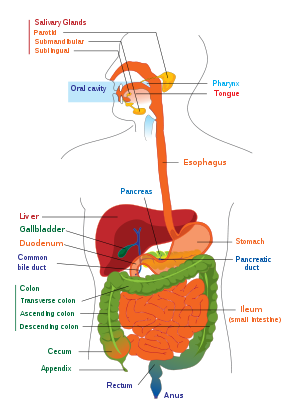
Relationship of the mouth to the body
As stressed in previous articles, oral health can influence our general health and vice verse. In fact, some changes in our general health are often reflected in the oral cavity and at times, can even precede clinical diagnosis of the systemic condition.
What are the common body changes that affect our oral health?
Hormonal changes in the body can often be a source of drastic oral health changes despite patients having fairly good oral hygiene. A hormone imbalance in the body, such which occurs during pregnancy or puberty spurt, can modify behaviors of cells in our body, in particular our immune system. Continue reading
